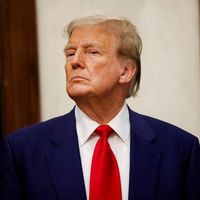In Washington, UN Nuclear Chief Feeds Confusion Over Iran Censure
An interview carried out by a US think tank with IAEA head Rafael Grossi has highlighted his disquiet over Iran’s reduced co-operation with the UN agency.
At one point in the interview, carried out by Brian Finlay of the Stimson Center, Grossi, the IAEA director-general replies "yes" when asked if he would support censuring Iran at the agency’s late November board meeting, but Finlay fails to ask a single follow-up question, even to query the grounds for censure.
This led to considerable confusion in media reports but Grossi or the IAEA have not denied that he said “yes” to the question about censuring Iran. It would be uncommon if the IAEA chief would publicly endorse censure, a decision that member states should make.
Throughout the rest of the interview, Grossi makes the clear distinction characteristic of the IAEA between its technical role as the body responsible for monitoring Iran’s nuclear sites and any political decisions taken by the nation-states who are IAEA members and sit on its board.
By the time he sat down with Finlay Thursday for a session broadcast live on Zoom, Grossi had met US Secretary of State Antony Blinken, National Security Adviser Jake Sullivan, as well as senators and members of congress. Asked about the ‘plan b’ or “other options” touted by Blinken should nuclear talks with Iran fail, Grossi said: “This is a national thing, or a multinational thing, and I don’t have an opinion on that.”
Grossi described the situation with Iran as a “difficult juncture” and stressed the importance of explaining the agency’s actions to the US government and “of course to listen to them.”
The IAEA head explained how the agency’s role interacted with the Vienna nuclear talks, which until suspended in June had sought to revive Iran’s 2015 nuclear deal, the JCPOA (Joint Comprehensive Plan of Action).
With the US, which left the JCPOA in 2018, taking part indirectly in Vienna alongside remaining JCPOA signatories – China, France, Germany, Iran, Russia and the United Kingdom – the talks have struggled to agree which US sanctions contravene the JCPOA and exactly how Iran’s nuclear program, expanded and improved since 2019, should be returned to JCPOA limits.
“When it comes to the JCPOA I am not a party to the negotiations,” Grossi said. “The IAEA is an essential element as a guarantor and a verifier, and we are in constant deliberation with the negotiators as to whether what they are doing is in line what we might be needed to be verifying and so forth. It’s an immensely dense process…”
Grossi explained that the IAEA’s role had entered a “new phase” not with the new administration of president Ebrahim Raisi (Raeesi), which took office in August, but with last December’s vote by the Iranian parliament requiring the government, should the US not lift sanctions, to both increase uranium enrichment and reduce IAEA monitoring to that required by the Nuclear Non-Proliferation Treaty. “Parliament was telling the government what to do with an amazing degree of specificity,” Grossi noted.
Keeping the patient stable
This had led Grossi to reach a temporary arrangement in February, extended in September, for IAEA access by maintaining its cameras, giving it the opportunity should the Vienna talks succeed to restore a full picture of Iran’s nuclear work.
Grossi said that in his talks in Tehran in February he had argued that keeping such a level of monitoring might help keep Iran’s “partners” within the JCPOA “simply because they would be able to avoid a big black hole” in terms of their knowledge of Iran’s activities. “We have been keeping the patient stable in terms of the amount of information and quality of information we can put on the table,” he noted.
Grossi has raised several matters of concern recently over Iran, including past unexplained nuclear work and the agency being stopped from servicing equipment at a site in Karaj.
But he clearly told the Stimson Center it was too early to anticipate what would happen at the IAEA board of governors meeting in November. At the last meeting September, the US did not raise a motion of censure, as it had been speculated, possibly because Russia made clear it would object.
Grossi said the board meeting was in his “mental structure” so far away that it was part of the 23rd century. “There is so much going on, and so much that may influence what may or may not happen there. I am concentrating on the immediate challenges that we have …There are many actors.”
The Iranian media generally played down the Grossi interview. Outlets most critical of the JCPOA have criticized the IAEA for following a political agenda coming from Washington.







